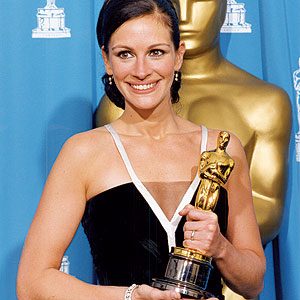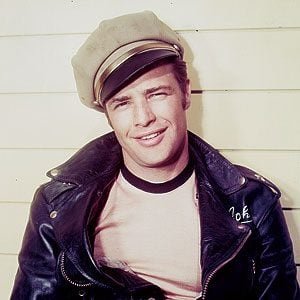
Who will take home the gold statue this year?
“The solemnity of the annual Nobel ceremonies in Stockholm with the cheerful bad taste of the grand opening of a shopping centre in Los Angeles.”
That’s how film critic Vincent Canby has described the Academy Awards. On March 7 you can see for yourself.
Hundreds of millions of viewers in 90 or so countries will tune in to watch the movie industry’s most glittering stars put on the glitz, and witness a select few take home Tinseltown’s top prize-the Oscar. Here’s a look at what it’s all about.
Cashing In
“Oscar winner.” It’s a label that means success, fame and, yes, riches. Nabbing a Best Picture Oscar generally guarantees a film an extra US$20 to US$50 million in ticket sales. Titanic earned a further US$100 million. According to Variety, a win in any major category will boost a film’s revenues by US$11 million.
Anyone who wins a Best Actor or Actress award is instantly promoted to the A-list and can exponentially increase his or her acting fee. It’s rumoured that Hilary Swank upped her asking price from US$1 million to US$8 million a picture after winning Best Actress (her second) in 2004 for the aptly named Million Dollar Baby.
More the Merrier
This year the Academy has announced that it is allowing ten movies to be nominated for Best Picture, instead of five. Wildly popular animated films, comedies and smaller independent films now stand a better chance of being nominated. (No animated film has ever won Best Picture.) The change should also boost viewer numbers for the annual ceremony because more film fans will tune in, hoping to see their favourite movie win.

Who Votes?
The 5,835 members of the American Academy of Motion Picture Arts and Sciences (AMPAS). Members nominate candidates in their respective fields: Film editors vote for film editing, etc. Oscar winners are chosen by a second round of voting where all members vote in each category.
Results are tallied on the day of the ceremony and sealed in 22 envelopes. (A duplicate set is locked away…just in case.)
“I’d like to thank…”
Winners are told to limit thank yous to 45 seconds, or risk being drowned out by the orchestra. Many ignore this.
In 2000 Julia Roberts began her Best Actress award acceptance speech for her role in Erin Brockovich by making sure the conductor knew exactly how she felt:
“Sir, you’re doing a great job, but you’re so quick with that stick. So why don’t you sit, because I may never be here again.”
It worked; the orchestra let her finish.

What were they thinking?
It is a question often asked about the Academy’s many missteps in failing to honour the greats. Alfred Hitchcock, nominated five times for Best Director, never won. His movies Vertigo, The Birds and The Man Who Knew Too Much weren’t even nominated for Best Picture. Stanley Kubrick and Orson Welles were snubbed. George C. Scott and Marlon Brando thought so little of the awards that they refused to accept their Best Actor statuettes. Best Actress winner Jodie Foster once said, “Much as I love the Oscar-night pageantry, it’s just a silly bingo game.”
Marlon Brando: 4-Movie Collection
Watch one of the world’s greatest actor in 4 films that truly display his acting diversity. Nab your copy from the readersdigest.ca online store!